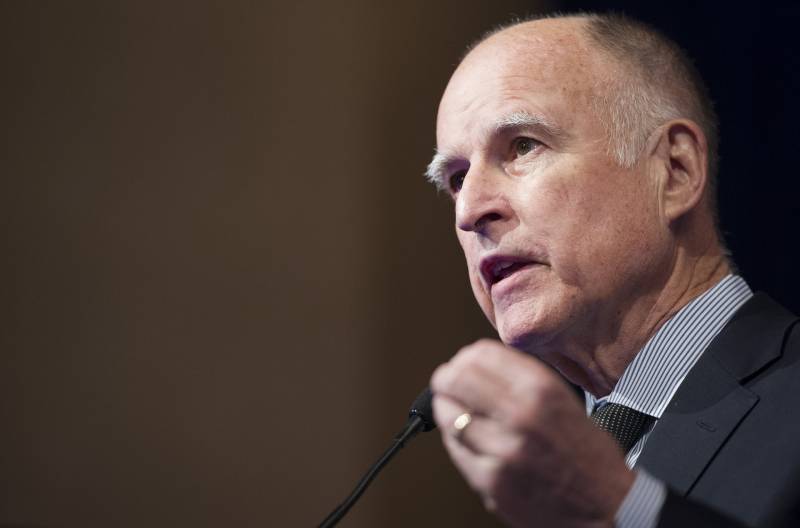“Prop. 20 wants to basically eliminate all hope in the prison,” Brown said. “Men who have given decades will have no chance to earn their way back to society. And that's fundamental to any kind of criminal justice system that while you impose punishment, you make room for redemption and rehabilitation in the prison.”
The former governor is referring to provisions in Proposition 20 that would undercut another state ballot measure: Proposition 57, which Brown authored in 2016. Proposition 57 allowed thousands of state prison inmates to appear before the parole board early and win release if they could demonstrate they have been rehabilitated.
At the time, Brown said it would help reverse laws put into place the first time he was governor 40 years ago that drove up California’s massive incarceration rates and led to overcrowding in prisons.
But Richard Temple, a spokesman for the Yes on Proposition 20 side, said Brown never told voters in 2016 that Proposition 57 would allow violent criminals a chance at parole.
“There are violent crimes that under California law are not classified as violence. And therefore, these criminals are allowed early release, which is not what Proposition 57 promised,” he said, citing rape of an unconscious person, sex trafficking of a minor, domestic violence, and assault with a deadly weapon as crimes that would be classified as violent under Proposition 20.
“What Prop. 20 does is simply go in and say, no, these are clearly violent crimes. We want to classify them as violent,” Temple said.
